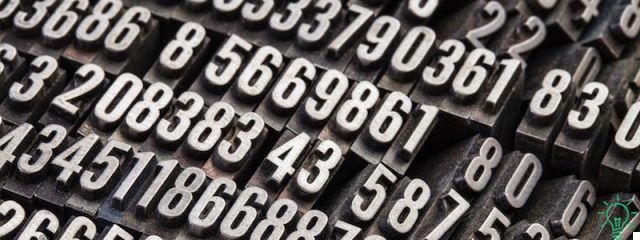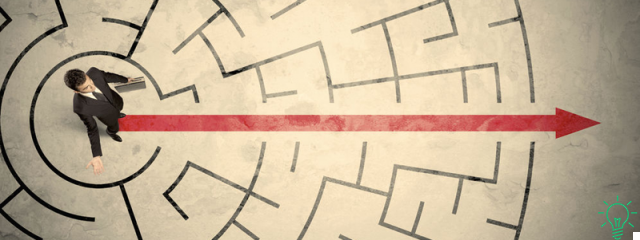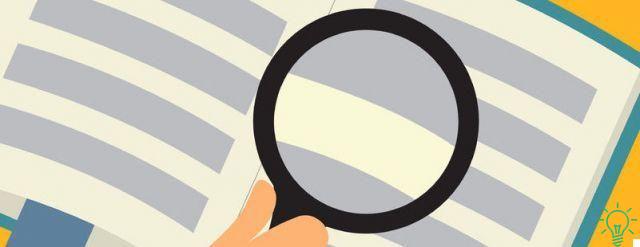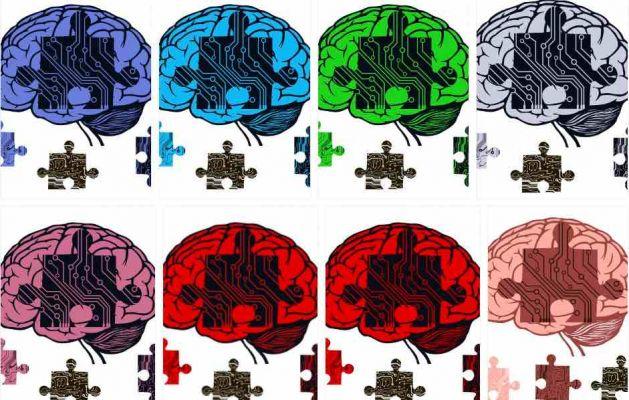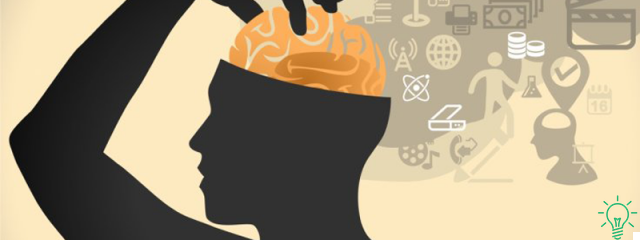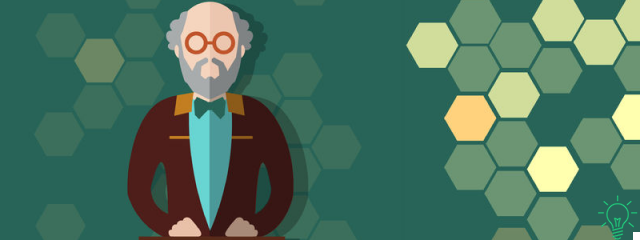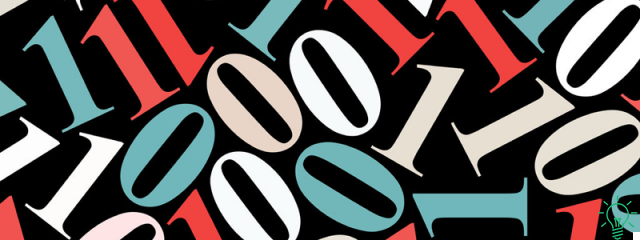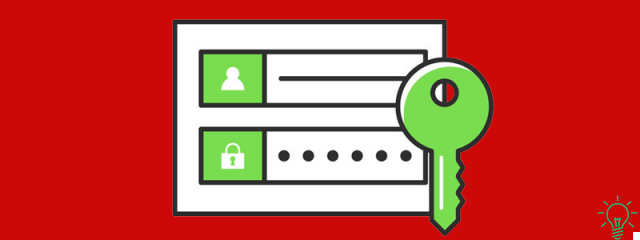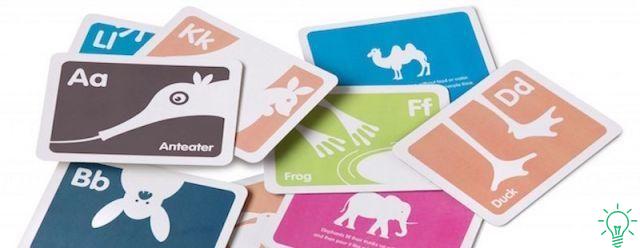
Il method of deferred repetition or spaced repetition is a memorization technique that is based on the repetition of information over time to improve memory.
Now, maybe I know what you are thinking….
“Anthony, what trivia are you telling me? It is obvious that if I repeat something many times, I memorize it! "
Well, actually it's not exactly that obvious: the delayed repetition method goes outside the scope of banality because it doesn't just make you repeat things, it establishes efficient also how many times and after how long to repeat them, which are two fundamental parameters for passing information from the short-term memory to the long-term memory
In fact, it is well established that the long-term memorization of information is more effective when the information itself is repeated a few times over long times rather than many times over short times.
Indeed, it would even seem that repeating an information many times in a short time slows down its transfer from short-term to long-term memory, and that therefore repeating things very often is a waste of time from the point of view of memorization (not that does not work at all, but has a very low effort / benefit ratio). And the hypothesis is absolutely plausible.
In fact, the brain likes to work efficiently, therefore
- If you present the same thing to him many times in a short time he will think: "ok, this stimulus repeats itself so often that there is no need to memorize it in the long term"
- If you present it to him every two days he will think "better to move this info into long-term memory, otherwise I risk forgetting it between one repetition and another!"
- If you present it to him instead once in a while he will think "useless to remember it, probably it is useless"
In essence, therefore, repeating something 5 times in a week creates a much more stable and strong memory than repeating it 10 times in an hour or 5 a year.
A delayed repetition system then becomes maximally efficient when it manages to re-present the information that must be remembered precisely just before it is forgotten, forcing the brain to make an active effort to retrieve it from memory.
Each subject has too different repetition times to give a 100% precise pattern, also because it always depends on how much you have to remember.
If I can give you some advice though, start like this: when you study a chapter of a book, repeat it 5 minutes after you finish it. Then again after 8 hours, on the same day. Then after a day, then after 3 days, then after a week. At that point it should remain etched in your memory for quite some time.
Once you have used this scheme a few times you will also have gained experience to adapt it to different situations and subjects, and to further optimize it. And maybe decrease the number of repetitions necessary to consolidate the memory over time.
Origins of delayed repetition: the invention of flashcards in the Leitner system
Sebastian Leitner was a German scholar who, in his book "Learn to learn" (as I like this title), proposed the use of a memory system based on the use of double-sided cards, the legendary flashcards:
“His method involved the formulation of notions to be learned by always pairing question and answer, which had to be written one in front and one behind a review card, called in German Lernkartei (known internationally as a flashcard); the bunches of flashcards were kept in graduated boxes due to the difficulty of the information contained ... "(see Wikipedia)
Flashcards are organized into easy decks (they are repeated less often), and difficult decks (they are repeated more often). When the student begins the review, he draws a random question from a deck: if he remembers the answer, he puts the flashcard in question in the deck of "easy" cards, if he does not remember it, he puts it in the "difficult" deck.
This type of review strategy allows you to:
- Better simulate what actually happens in exams, where questions are asked randomly, as discussed in the article "how to develop an effective study method"
- Avoid the typical mistake of reviewing everything equally, wasting time with things you already know and not adequately reviewing those you don't know.
The Leitner system is very effective, and in fact it has one big problem: you have to invest a lot of time in the physical preparation of the flashcards. Not that it's completely wasted time, because that's also a way of memorizing, but fortunately today's technology allows us to be much more efficient.
Delayed repetition software and apps: Supermemo and Anki
The programs and apps of delayed repetition, called in English SRS (spaced repetition software), have systematized and made precise the spaced repetition method that Leitner had developed, in an artisanal way, on the basis of his intuitions.
They work similarly to Leitner's system, presenting the student with a question on the screen, and then storing it in "digital packs" depending on the correctness of the answer, or the time taken to answer, or the subjective evaluation by the student (many software use a combination of all three strategies).
Based on these evaluations, it is the software algorithm itself that decides when to resubmit the application to the student, and how many times, thus maximizing the efficiency of memorization.
But the really nice thing, what makes these systems fantastic, is that very often you don't have to build the decks, because there are already facts and they are downloadable, very often for free. And this saves a huge amount of time.
Precisely for this reason, delayed repetition software is particularly useful in studying the vocabulary of foreign languages, where pre-assembled flashcard packs of 1.000, 2.000, 5.000 or even 50.000 words / expressions already exist, often even organized by "themes" (travel, sports, cooking, everyday life, or whatever else you can think of), and available for almost all known languages. And of course they don't just provide you with the written version of the words and their translation, but also the pronunciation, so that the spaced repetition does not only occur at the level of the acquisition of the written vocabulary, but also of the spoken one.
The most popular among the delayed repetition software is undoubtedly Anki (which in Japanese means “memorization”) of which there is also a free app, and which I am testing to evaluate its potential in the study of the Chinese language.
The most "ancient" instead is SuperMemo, already developed in the early 80s by Polish programmer Piotr Wozniac (curious, his surname is almost the same as the mythical apple co-founder, the supernerd - in a good sense - and digital guru Steve Wozniacki), and then continuously updated and still very much used.
The delayed repetition apps then have, compared to traditional physical decks, another great advantage: portability. Just download them on your mobile, download the digital decks you are interested in, have a pair of headphones, and you can study just about anywhere.
However, there are situations where physical flashcards still have, in my opinion, a significant meaning and importance: when you want to use them to teach a language to small children. In this case, in fact, there are many decks with designs suitable for children, especially for English, and in my experience I have always seen children use them willingly.
Another very good delayed repetition system for learning languages, even if it doesn't actually use flashcards because it's practically audio only, is the Pimsleur method, which I tried for both German and Arabic learning. Very expensive, but with many advantages (and some defects).
What do you say then? If you've never tried a delayed repetition system, now is the time to do it. Thanks to technology it has never been easier. If you do, let me know how you found yourself by leaving a comment in the space below.
If you liked the article and think it might be useful to someone you know, share it with your friends on facebook.
You will make me happy and help my work!
Greetings, Anthony.





